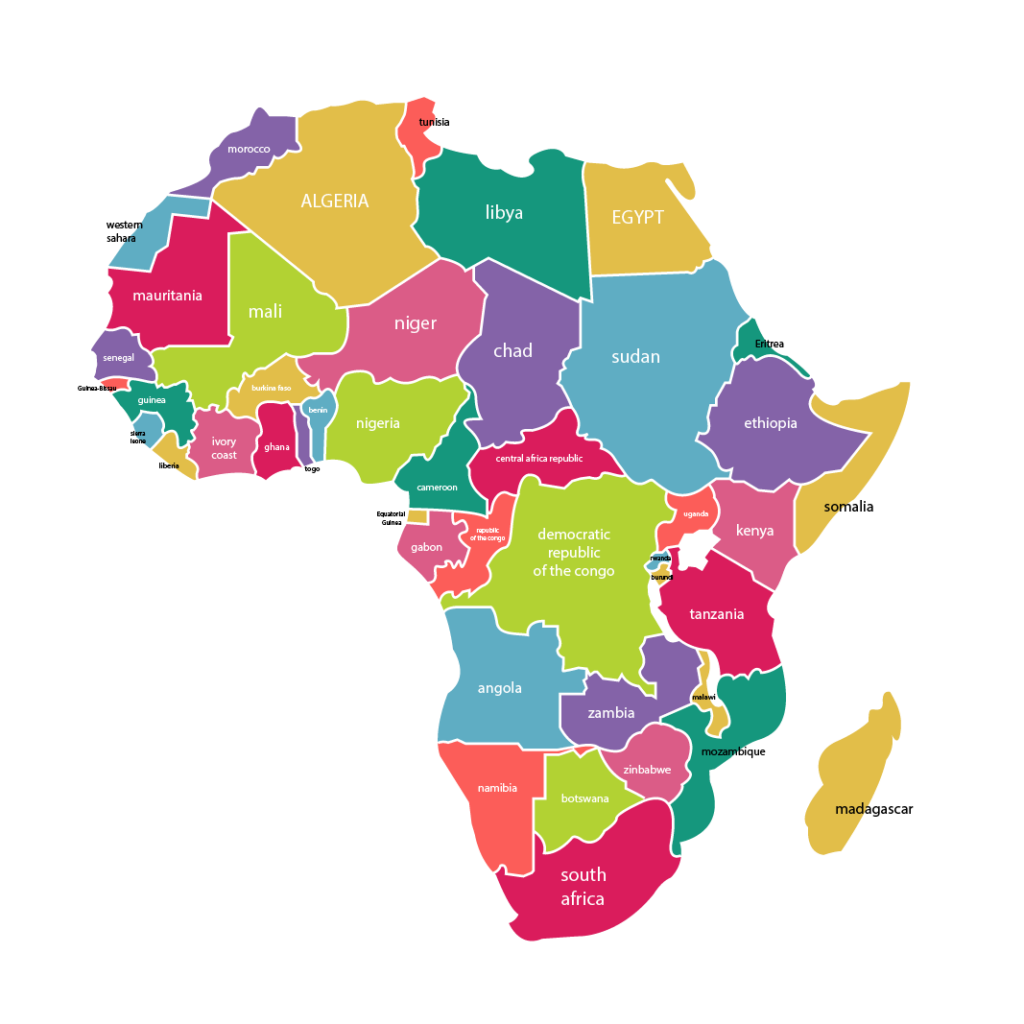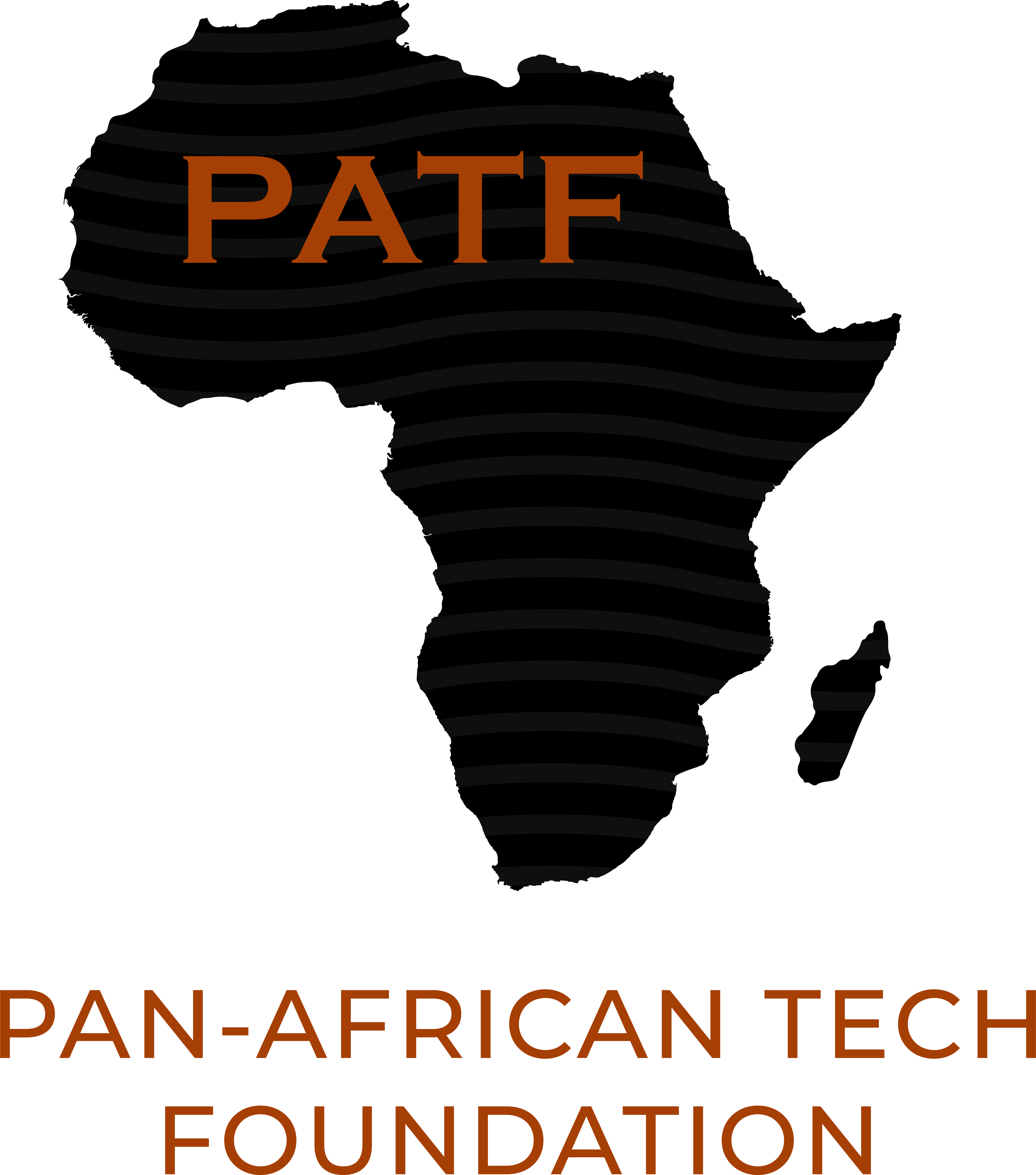ABOUT US
Pan African Tech Foundation (PATF) is an independent, not-for-profit, non-governmental organization
established to provide education, legal,
regulatory, and technological support in establishing and implementing
emerging technologies and digital transformation in Africa.
About PATF
Pan African Tech Foundation (PATF) is an independent, not-for-profit, non-governmental organization established to provide education, legal, regulatory, and technological support in establishing and implementing emerging technologies and digital transformation in Africa.
PATF focuses on harnessing Africa’s talent, in particular that of young Africans, by nurturing an environment of idea generation, innovation, and creativity to bring novel technological solutions to market and contribution to Africa’s sustainable development.

PATF aligns its vision for Africa to the African Union's vision.
“The Africa We Want envisions Africa as a continent on equal footing with the rest of the world as an information society, an integrated e-economy where every government, business and citizen has access to reliable and affordable ICT services by increasing broadband penetration and providing venture capital to young ICT entrepreneurs and innovators." - African Union
Our Belief
Pan-African Tech Foundation (PATF) is of the conviction that young Africans, who will constitute up to 42% of the world’s youth population, of which 75% will be under 35 by 2030, is a global, untapped asset. PATF inspires technology actions. It facilitates the private and public sectors in harnessing this unique demographic dividend and helping seize the opportunity presented for an increase in the mass adoption of emerging technologies in Africa.
Process
OUR APPROACH
PATF adopts a holistic approach by bringing together a highly experienced multidisciplinary team of key experts to meet the key objectives of delivery of African governments’ technological agenda.
The African Union’s Digital Transformation Strategy for Africa (2020-2030) promotes the objective of “Recognizing the efforts of the continent’s leadership to prioritize and accelerate digital transformation” and further states that “Building on the vision of many African leaders, African countries are ready for a comprehensive digital transformation strategy to guide a common, coordinated response to reap the benefits of the fourth industrial revolution,” based on six foundation pillars of: Enabling Environment, Policy and Regulation, Digital Infrastructure, Digital Skills and Human Capacity, Digital Innovation and Entrepreneurship.
With new technologies like Blockchain and AI, African governments will have the ability to develop innovative solutions in agriculture, improved food security, healthcare, delivering safe drinking water, quality accessible education, digital identification, digital solutions to voting in elections, banking the unbanked, efficient management of utilities and effective tax collection. Health care, identity management and renewable energy are some of the non-financial blockchain use-cases already gaining popularity in Africa. Transparency, traceability and data security characteristics of blockchain technology will aid in tracking the life-cycle of medicines, countering the menace of counterfeit drugs in Africa. Research and Development (R&D) will guarantee sustainable development as well as an enabling vehicle for keeping abreast with developments in science, technology and innovation.
OUR GOALS
team of critical experts to meet its objectives and support African governments’ technological developmental agenda
Education
Hardwiring a focus on STE(A)M in formal education.
Youth Innovation
Tech-centered initiatives for young people.
Afro Tech
Indigenous African technological solution to African challenges.
Big Data Services
Dynamically innovate resource-leveling customer service for state of the art customer service.
Business Intelligent
Nanotechnology immersion along the information highway will close the loop on focusing solely
Digital Transformation
Digitization in public and private sectors. Afrocentrric solutions for African problems.
Digital Economics
Making data affordable, making equipment affordable, Making networks affordable.
Elaine Bannerman.

